

Feds Approve Rhino Permit
Home » Press Release » Feds Approve Rhino Permit
DALLAS – A Texas hunter has received from the U.S. government a permit to bring home the taxidermy from a planned hunt for a black rhino in Namibia.
The U.S. Fish and Wildlife Service – which administers the Endangered Species Act and regulates Americans’ associated activities – approved the import permit based on the scientific and financial validity of the rhino hunt.
Read the agency’s announcement .
DSC, the conservation organization that auctioned the hunt in early 2014, says the federal approval is vindication for biologists in Africa who prescribed the hunt as way to grow rhino populations. Aged, non-breeding male rhinos are known to charge and kill younger bulls, cows and even calves. This behavior, well documented in scientific literature, jeopardizes the future of a herd. Removing these animals enhances herd productivity.
DSC auctioned the permit for $350,000 – reportedly the highest price ever paid for a big-game hunting permit in Africa – with 100 percent of proceeds going to Namibia for rhino conservation, habitat and anti-poaching initiatives.
“Animal rights extremists bashed the scientists, threatened the buyer and harassed DSC. Now that the world’s leading conservation agency has approved the hunt as a way to help rhino populations, and issued an import permit, I hope some of the naysayers will make an effort to actually understand what they were protesting,” said Ben Carter, DSC executive director.
To help, DSC has posted some myths and facts about “trophy hunting.”
Namibia is authorized to sell up to five rhino hunting licenses a year. With hunting as part of its management plan, and with associated funds to fuel conservation and law enforcement programs, Namibia’s black rhino population has grown from 60 animals in 1966 to about 1,500 today.
The rhino hunt may be scheduled for later this year or even 2016.
Carter commended the U.S. Fish and Wildlife Service for its professionalism throughout the permitting process and public comment period.
Recent Posts
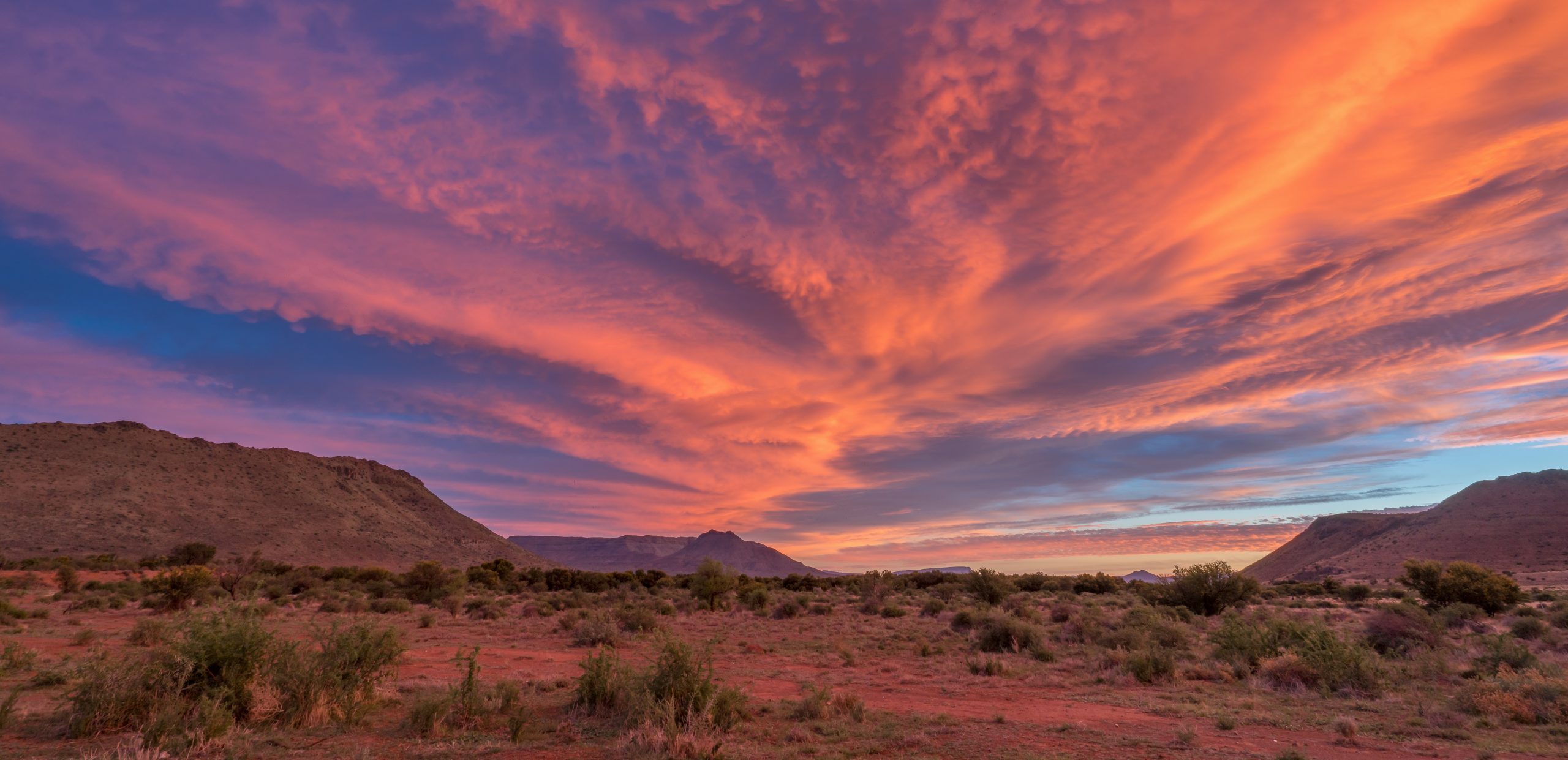
Larry’s Blog: The Copper Sky
“Not unlike the shine and hue of a newly minted penny!” came the voice from beneath a worn and worn well brown felt hat. “Spect
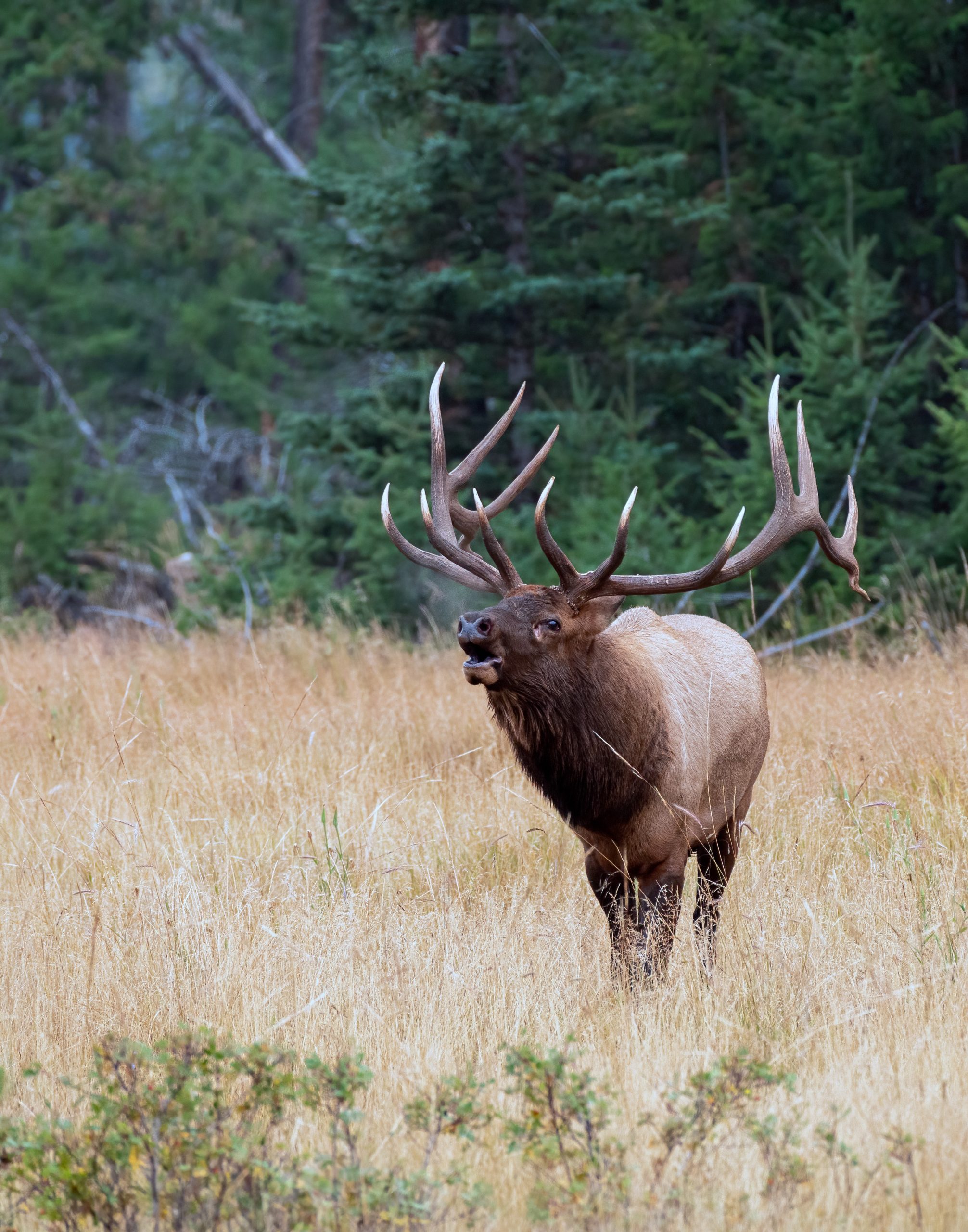
Governor’s Big Game License Coalition Allocates $1.8 Million for Conservation Projects
The Wyoming Governor’s Big Game License Coalition finalized its 2024 project funding and will allocate $1.8 million for Wyoming wildlife conservation projects. A total of
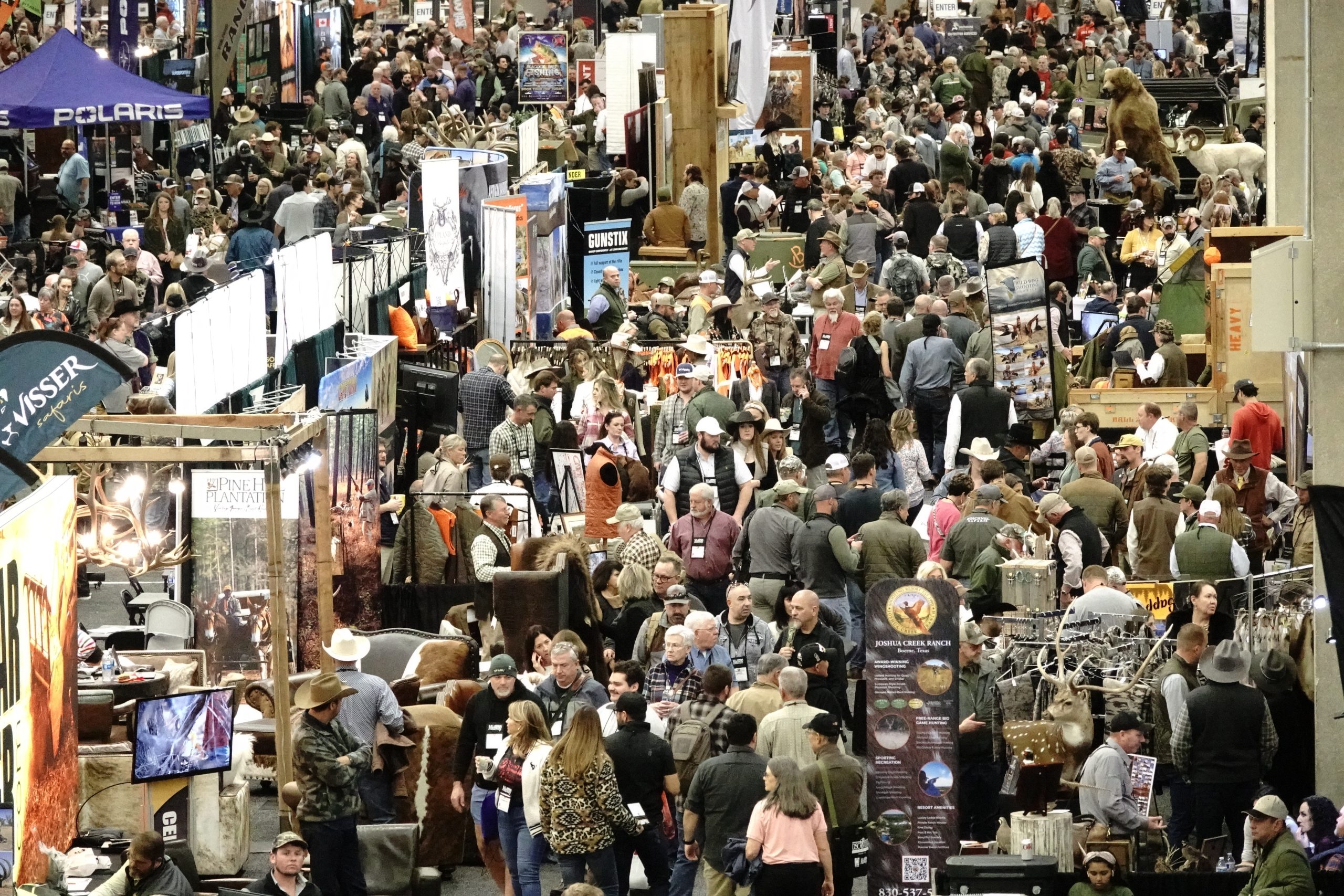
DSC’s Communication Regarding Recently Announced Outdoor Event in Dallas 2025
With the recent announcement of a new outdoors-type event in Dallas in January 2025 that is on the same dates as the DSC Convention in
- 972-980-9800
- [email protected]
- 13709 Gamma Road Dallas, TX 75244
- Dallas Safari Club Public Records
- Privacy Policy
- Rhino species
- Poaching stats
- Rhino populations
- Thorny issues
- Protecting rhinos
- Reducing illegal trade
- Engaging communities
- Bringing experts together
- Get involved
- Join as a member
- World Rhino Day
- World Ranger Day
- Get your business involved
- Leave a legacy
- How we spend money
- Meet our partners
You are here: Home » News » The Dallas Safari Club controversy
The Dallas Safari Club controversy

28 Oct 2013
By: Save the Rhino
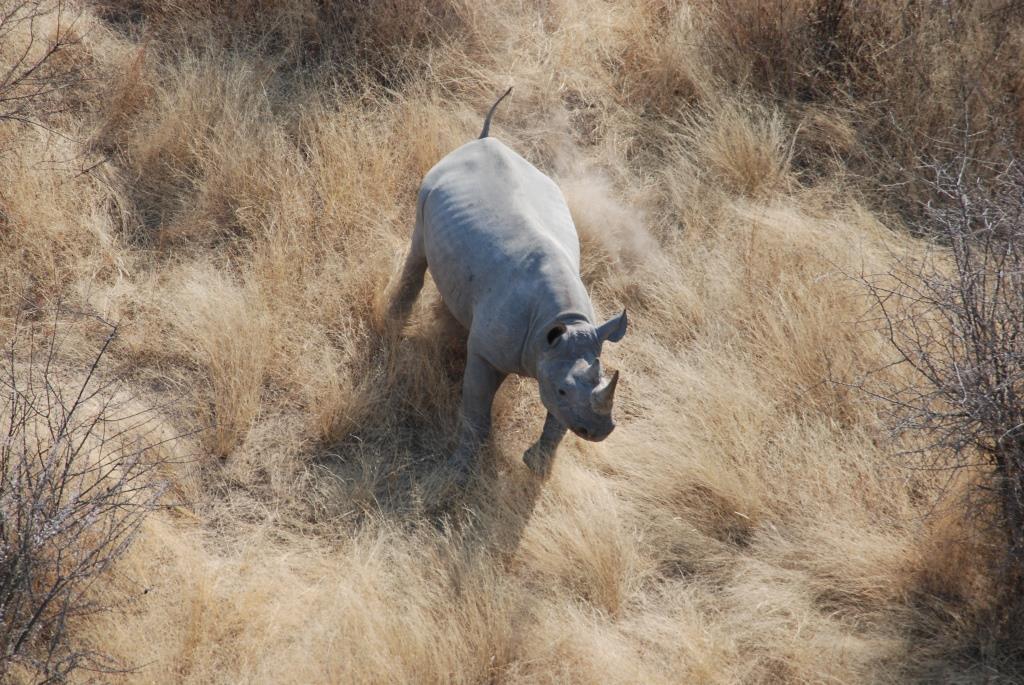
Websites and newspapers this month have carried many articles and comments about an auction, to be held in Dallas in January 2014, for the right to trophy hunt a black rhino in Namibia. We’re curious as to why this particular trophy hunt auction has received such widespread coverage and comment.
South Africa introduced limited white rhino hunting in 1968, when there were only 1,800 animals within South Africa (now there are 19,000). Namibia and South Africa have each had the right (under CITES – the Convention on International Trade on Endangered Species) to offer up to five trophy hunts of black rhinos since 2004, when there were around 3,600 black rhinos (now there are 5,055). In other words, black rhino trophy hunting has been on offer for nine years already.
So what’s new about this story?
The key difference is that Namibia’s Ministry of Environment and Tourism (MET) , which owns all black rhino in Namibia, has decided to auction this particular trophy hunt in a different way. Normally, MET holds auctions in Windhoek, Namibia, which are attended by a mix of individuals and companies. Most of the bidders will be hunting safari operators, who buy permits to shoot particular numbers of specific species, and then offer these to their mailing list of clients, making a nice margin for themselves along the way. In South Africa, state departments like Ezemvelo KZN Wildlife do the same thing: hold an auction, within KwaZulu-Natal in this case, and hope the customers will come to them.
Instead, MET has looked at where the wealthiest hunters are – and these tend to be American or German – and has focused on getting the best possible price for a black rhino trophy hunt. Rather than hold the auction in Namibia, and hope that there are enough people with serious funds in the room to drive the bid up, they’ve gone straight to the potential customers – in this case, the members of Dallas Safari Club. Funds from this auction will go to the Game Products Trust Fund in Namibia and will be ring-fenced specifically for rhino conservation efforts.
Texas is one of the wealthiest states in the USA and it makes sense to set your stall out where the money is. There’s no point opening a shop selling de Beers’ diamonds in a council estate in a rundown city suburb. Indeed, the Club’s Executive Director, Ben Carter, thinks the trophy could go for as much as US $750,000.
In 2013, Namibia issued three trophy hunting permits, and auctioned them in the usual way, in Windhoek. These permits sold for N$2.18m, N$1.815m and N$1.815m, which at today’s exchange rate work out at US $223,000, US $185,000 and US $185,000. On this basis, if Carter’s prediction holds true, MET’s experiment could be a very profitable one, with over three times as much raised for black rhino conservation than the previous method.
Why, people ask, is a conservation organization like MET or Ezemvelo KZN Wildlife even allowing trophy hunts in the first place? Couldn’t they get $750,000 without having to suffer an animal being shot?
Well yes, it would be nice if donors gave enough money to cover the spiralling costs of protecting rhinos from poachers. Or if enough photographic tourists visited parks and reserves to cover all the costs of community outreach and education programmes. But that just doesn’t happen. It costs around $500,000 a year to run a relatively small rhino programme with only 20-30 animals. Heaven only knows how much it costs to run Kruger National Park in South Africa, or Etosha National Park in Namibia.
Fundraising for rhinos is hard. We’re not just competing for funds against other endangered species – elephants, tigers, polar bears, pandas – but against cancer charities, children’s charities, or the most recent natural disaster. In “An inconvenient truth”, Al Gore asserted that 97% of charitable giving goes to people-related causes and 1.5% to pet charities, leaving only 1.5% for the conservation of our entire planet. Are enough new rhino-focused donors really going to come out of the woodwork to make income from trophy hunting unnecessary?
We’re not surprised that this innovation has come from Namibia. The country led the way with community-based natural resource management programmes in the 1990s, an approach that has widely been hailed as keeping communities on the side of wildlife as rhino poaching has stormed through Zimbabwe, South Africa and Kenya. MET has been an early adopter of various types of new technologies for protecting rhino – UAVs, tags, microchipping rhino, satellite bracelets etc.
Let’s see if MET has made the right call on holding this auction in Dallas.
Click here to read a good article by Steve and Ann Toon, who recently interviewed Pierre du Preez, the national rhino co-ordinator for the Namibian Ministry of Environment and Tourism (MET). Pierrre explains the history of sustainable wildlife utilisation in Namibia and the importance of funding from the Game Products Trust Fund.
Click here to read a comment from the IUCN African Rhino Specialist Group regarding the recent Dallas Safari Club black rhino permit auction
Click here to read a comment from the IUCN Sustainable Livelihoods Specialist Group regarding the recent Dallas Safari Club black rhino permit auction
37 thoughts on “ The Dallas Safari Club controversy ”
Hi Cavens, The population figures that we display on our website are from the IUCN as of the 31st Dec 2013 as these are the official rhino population figures. These figures are updated approx every 4 years when a new census is done. http://www.iucnredlist.org/details/4185/0
https://www.savetherhino.org/rhino_info/rhino_population_figures
The Northern white rhino which you refer to in your comments is a subspecies of the White rhino. There are only 5 left in the world and there has been stories recently about Sudan, the last male Northern white rhino being guarded 24/7 by military.
There are approx 20,405 Southern white rhino based on the last census and are mostly found in South Africa.
I’m not too sure which numbers you are referring to that you feel are confusing.but I hope this helps clear things up.
I have no clue where you get the white rhino numbers from, i’ve read recently that they have the last wild living white rhino garded 24/7 by military and just googleing it links me to this
http://en.wikipedia.org/wiki/Northern_white_rhinoceros
on the other hand you have the other subspecies but your numbers are not matching at all,
you are just taking both and mixing them to make it look good
http://en.wikipedia.org/wiki/White_rhinoceros
get your facts straight and maybe you’ll get some credit
and the numbers you are talking about are about these
I think this is complete and utter blasphemy!!!! I’d like to see how happy you’d be if someone hunted you and sold your precious body parts in auction. I wish hunters would try and manually kill a rhino and see how tough they are against one of natures true brutes! These lowly, sad, and unfortunate excuses for human beings. And people who support limited hunting are just as bad. How counterproductive can that be? Its absolutely ridiculous. These Rhinos will be gone in 50 years tops for every 5 rhinos killed. Screw Namibia for they’re ridiculous money hungry government. Hmph some protective wildlife service this is.
Some more facts about the killing of the black rhino. Trophy Hunting with the WWF: http://www.pandaleaks.org/kill-it-to-save-it/
@savetherhino You shoulld be ashamed to be in support of this!!!!!!!! Disgraceful SAVE THE RHINO…….What a Joke!
Hi As a Namibian and having been involved for many years as a guide, I can tell you the community based conservation is not working as planned.. I can go now to the North west of Namibia and buy a Oryx antelope for N$350 from the community with out a hunting permit.. greed drives these communities now, just look at the conservation efforts of desert lion conservation efforts and how many Lions they have lost through poisoning etc in communal areas… The Namibian government is the problem here as they could help save their Rhinos in stead of refurbishing parliament buildings for hundreds of millions and channel money to conservation this is stupid..Follow Botswana and stop all hunting of key icon species.. there are none left for heavens sake!!!!!
I understand the concept. I understand hunting brings in revenue. But, when is it okay to do something ethically questionable for profit? For example, couldn’t the US and China have made lots of money by selling ivory rather than crushing it!? They could have given the money to elephant charities. They did not want to promote ivory use under any circumstance. Why is it okay to promote trophy hunting? WWF is trying hard to decrease trophy hunting by their “”I am not a rug”” campaign and another organization is supporting it…. It doesn’t make sense to have good and bad trophy hunting– it sends the wrong message. How far do you go to make money? Why is it okay to sell a rhino for trophy, but not an elephant for tusks or a tiger for fur??? I suspect this will hurt your long term fund raising too– I hope it was worth it.
Dear anonymous commentator
I’m sorry to read that you are considering whether to continue to support Save the Rhino International because of our support for the sustainable use of wildlife.
Could I please ask you, if you haven’t done so already, to read two articles posted on our site:
– Firstly, for background information on trophy hunting overall: http://www.savetherhino.org/rhino_info/thorny_issues/trophy_hunting – And secondly, an article by the IUCN Species Survival Commission’s Scientific Officer for the African Rhino Specialist Group, on why the IUCN believes that trophy hunting has a role to play in rhino conservation efforts: http://www.savetherhino.org/rhino_info/thorny_issues/trophy_hunting/the_debate_about_rhino_hunting
It’s an extremely difficult issue, and I hope you understand that our position has not been taken lightly, but has been considered with great care and using the best scientific advice available.
I’m very disappointed to hear that the Save the Rhino organisation supports these practices. I was unaware that this type of thing was allowed, much less supported by this organisation, until the uproar over this very publicised one made headlines. My husband and I have been supporters of Save the Rhino, but this support will be reviewed this year. Practices that reinforce and publicise the monetary value of a dead rhino surely does nothing to discourage poachers.
Hey Rhino Killers, yeah you wearing the t shirt that says I’m a kill crazy idiot! I’m calling PETA, The Humane Society, and any straight headed person on this planet on you! Save the Rhino huh? How about kill everyone you can find and boast about IT!
To Steven- Hunting sometimes works for conservation and sometimes it does not. There are several factors involved. The biggest one being does the money truly go to conservation. unfortunately is does not always go there especially when dealing with corrupt safari companies and governments. I am not arguing the hunting issue here, just that it is not as black and white as you make it appear. Whether an anti-hunter has donated money or not is as relevant as if a pro-hunter has ever paid for an expensive hunt. Hunters are not necessarily paying for conservation, many are paying to hunt, with conservation being the by product. Too often each side tries to vilify the other. No doubt there are anti-hunters who are uneducated in the matter just as there are hunters who could not care less about conservation and only care to kill. I could ask the question- how many hunters contribute to conservation just for the good of it? Will those who bid at DSC and loose still contribute money to conservation without getting the chance to kill something?
Jessica, I beg to differ with your acerbic attack. Instead of providing us all with your insightful reasons as to why to found the post to be idiotic, you blessed us all with your your own insanely idiotic post. At no point in your short ramble were you even close to providing a rational thought.
This is the type of reply that causes more friction than good. Here we have someone laying out observations and asking questions in an attempt to perhaps come to terms with each others’ agendas. To maybe find common ground. Instead of you carefully reading the post and addressing her comments one by one, you attack.
There were several posts hear asking the anti-hunters to think with reason and not passion. I must question whether you thought at all. I cannot figure out what side you are on. Perhaps you do not agree with what she posted, but instead of sounding less intelligent than you accuse the author of being, you should provide a coherent substantiated retort.
Now in case this was all too much for you, i will simplify it: Your comment was uncalled for, inconsiderate, unintelligent, and combative. Go find an elementary school website to post on since that seems to be your level. Good day to you.
What you’ve just said is one of the most insanely idiotic things I have ever heard. At no point in your rambling, incoherent response were you even close to anything that could be considered a rational thought. Everyone in this room is now dumber for having listened to it. I award you no points, and may God have mercy on your soul.
A really interesting set of comments so far. I wonder if there is a set of common goals no matter who’s “”side”” (hunting vs no hunting) of this debate you are on. Can both sides agree on the following – (a) Seek that the Black Rhino species to live on, ultimately to no longer be “”endangered”” (b) Seek an end (or at least a significant reduction) to poaching (c)Seek an end (or at least significant reduction) to the illegal rhino horn trade (d) Agree that funding needs to be raised to adequately resource Rhino Conservation (e) Seek accountability on how those funds raised are to be spent on Rhino Conservation (f) Seek that adequate evidence is provided for any Rhino deemed counterproductive to a Rhino population (ie. counterproductive = causing stagnation or decreases to a Rhino populations) and therefore requires “”removal”” from that population.
I think it is important to find what can be agreed on across the spectrum of participants in this discussion. Ultimately, the dispute lies with “”how”” we achieve these goals, if these goals (above) can be agreed on. I would welcome comments on the goals above.
A few key points of contention that stand out are:
From the perspective of those that are broadly “”against”” hunting an endangered species – It appears that the hunting fraternity seek the opportunity to “”hunt”” and “”kill”” a Rhino, and “”justify”” this by saying that hunting generates the necessary funding for conservation. This is largely viewed as an “”excuse”” to hunt.
There appears to be a consistent message from the Hunting fraternity that they are the ones putting money into Rhino (and other species) conservation and that those that are “”against hunting”” do no contribute financially, or if they do contribute, the funding is inadequate.
Those against hunting view the hunting fraternity as “”blood thirsty”” and egotistical.
The hunting fraternity view those against hunting as having unrealistic expectations and living in something of a fantasy world remote form reality.
Some of these views,appear to stem from the current situation for Rhino populations – at this point in time, the Black Rhino is endangered. This conversation, and some of the views, could potentially be vastly different if the Black Rhino was not endangered. Everyone has different views on how we should get to that point in time.
I’d like to note that there has been no meaningful discussion of an alternative to actually hunting and killing the Rhino that requires “”removal”” – neither the hunting fraternity or those “”against”” hunting have mentioned alternatives for “”removal””, such as relocation to a sanctuary, zoo, or other? Would a zoo or sanctuary want/ have a need/see benefits in housing a male Black Rhino past it’s breeding prime? What are the practicalities, financial implications, for alternatives? What would people be willing to do for an alternative solution to “”remove”” this Rhino (and up to 5/year based on current hunting permits?)
I wonder – if it could be shown that this Rhino (and others) could successfully be relocated and become, for example, an ambassador for the Rhino Species, and a similar amount of money be to that expected to be raised by auction for Rhino Conservation – would the hunting fraternity and those opposed to hunting fraternity be equally happy? What common goals are not met by an alternative?
Looking at the common goals (if they can be agreed on), the Auction scenario appears to do nothing to increase awareness of the plight of the Rhino, and it could be argued that it promotes the killing of an endangered species, and it appears to do nothing to combat poaching etc. Unless funding raised can be specifically shown to be spent in the certain areas – such as education, anti poaching, etc, then are there alternatives to hunting and killing.
There is no denying that the hunting fraternity can raise significant amounts of money. Just like some people can afford to purchase million dollar pairings to hang on their walls. Some others have barely a penny to rub together, but still care about the Rhino and other endangered species none the less.
The question needs to be asked: “”Acknowledging that the Hunting fraternity can come up with significant money, why can’t the hunting fraternity simply raise funding for Rhino Conservation, without the hunting permit, and manage those funds specifically to achieve the agreed goals?””. Does there have to be a “”hunt”” and “”kill”” for the hunting fraternity to donate funding to Rhino Conservation? If the hunting fraternity could raise funding without the “”hunt and kill””, in the longer term – once the Rhino is no longer endangered – people form all backgrounds may be more open minded about the acceptability to hunt a Rhino.
Your thoughts?
First of all i would like to thank Dallas Safari Club for taking the positive step towards conserving our uniquely adapted desert Black Rhino’s. To all the critics i would like give my opinion. The fat arsed rich white man who likes to inflate his ego by hunting and displaying his trophy. While on the hunt he might resent himself for not opting to run the comrades or fish river marathon instead. This is not done from the back of a land cruiser with a cooler box full of nice cold beverages and snacks. You slam hunters but what about poachers? Have you seen the cruelty they bestow upon their quarry? They will take pregnant cows, young calves, and in some cases the animals horn is chopped off and its still alive afterwards! They dont hunt selectively! Spend your time and energy on waking up asia so they don’t think rhino horns have any medicinal value! Research has shown that taking out the old counterproductive bulls that are very aggressive towards their own species also benefit the rhino population as a whole. The system works at and thats that – it has been working for many years. The estimated amount the permit will go for on the auction is USD 750,000-00. While the whole world is crying foul over this topic no one is saying two words about the stupendous amounts of bucks earned per film by actors. A private art collector spent USD 250million on a painting. That is atrocious in my opinion – why dont you go crying about that instead of berating a group of people for doing something positive about an issue. People who go to africa, spend money, get out in nature and experience it full on. But instead you sit in your armchair and criticise. And discuss it with your buddy or bff while sipping a starbucks latte. Wearing make up tested on some poor chimp in some lab somewhere. Why dont you book a safari, come to Africa, get out in the lekker hot sun and make a diffirence ( you would have to take a long safari to even contribute a small fraction of what that rich fat arsed hunter is pumping into our conservation trusts ) But you probably would rather go to some tropical island somewhere to be pampered and massaged….
And now the Dallas Safari Club is using this column as evidence that their hunt is acceptable.
It just disgusts me that rich white men are going to third world countries to kill endangered species. And your lukewarm support is even more disgusting.
Interesting to read the debate, and I am actually not sure which side to choose. But as a comment to some of the guys above, I would like to present myself – yes, I eat meat and I hunt a small amount of it myself. I do not hunt to hang a trophy on the wall. To Steven I can say that I spend quite a lot of money on hunting (with a camera) trips to Namibia, Botswana and other countries in southern Africa, and……… I spend some of my salary each month on antipoaching actvities through the WWF – so try not to patronize me by saying “”you don’t know about this or that””. Now – about the issue – the saving of some by killing another? Yes, I can agree on that since there seem to be no other way to finance the anti-poaching squads. But, I can not readily accept the stupidity in the rich people of the world, the Chinese who buys the products from the poachers and their middle-men or the Westerners (seems to be a majority of such in the red-neck belt in the US) who wants to kill something to be able to brag about their money and the danger in killing a half-blind animal,which was chased in front of their Landrover. And………….if killing is so acceptabel to save some, why not start killing off elderly people and people with incurabel diseases to get organs? Or pay a fee to shoot persons with a death sentence – they will get killed anyway…. Most will say that this would not be acceptable and start gibbering about the difference between humans and animals – and there are differences, lika animals are not evil, animals will only kill to protect themselves or to eat (a fox killing off a lot of hens does not do it for fun or bloodthirst, it just lacks the ability to stop as long as the hens flap and try to flee) So – to finish it off – I can accept this Rhino auction, but I loathe the reasons for it and the bidders
How many of you anti-hunters have donated one cent to the survival of the animals you are so passionate about “”saving””? I have been to South Africa where my license and trophy fees have contributed a great deal to the conservation and propagation of the species I hunted. Also, every game aminal we harvested was butchered and eaten, some by us, but the majority of it by the resident consession workers who are given free meat each day to take home for their families. We here in the U.S. pay something called the Pittman/Robertson act tax on every purchase of outdoor recreation, hunting and ammunition that contributes muti-millions to the conservation effort of animals that would be extinct without sportsman in our country. Whitetail deer, turkeys, elk, bighorn sheep, grizzly bears, wolves, mountain lions and many more species have been saved from the brink of disaster by concerned sportsmen. Get educated before you condemn the pro-hunting/conservation platform. It works and is best for all parties concerned, even the animals who without it would be either extinct or overpopulated and diseased/starving. Nature is hard yet beautiful, brutal yet resourceful and replenishing. We do best to work with it to wisely use this resource and appreciate the gift God has given us to be steward over. Poaching is the problem in Africa for rhinos, elephants and several other large species. But the true problem stems from political systems that produce poverty and injustice, where people will do anything to make a buck, and have little or no regard for human or wildlife.
I don´t lose time discusing with all those anti-hunting. Unfortunately, they are not driven with the purpose of protecting endangered species, they ultimate goal is to print in everybody´s mind that animals are equal to humans and because of that, its wrong to kill animals. Animals are not equal to humans and that became obvious when you see that humans have moral, can make choices beyond their insticts and more important, they are rational. The anti-hunters want to call us “”blood and ego thirsty individuals”” but they don´t want to recognise their psicological problems watching the bambi´s mom deaht and -more important- that hunting is doing more to protect endangered species that their PETA, Greenpeace ad HUSUS protest that only raise money to finance this people making protests instead of being an active part of the solution. At least hunters are trasparent with the use of the money raised in hunting permits and the most part is applied with land management. For me, your use of “”humanity”” its a sad and pathetic excuse to raise money and don´t do nothing to save the ecology. The well greased gears of the protest industry don´t do nothing to take care of our enviroment.
A rhino hunt? Endorsed by blood thirsty gun packing Americans always find a pathetic excuse to kill something. Sad excuse for humanity.
It is definitely worth a try. Your article should also have mentioned that Namibian authorities will designate the rhino to be hunted, an older, irascible one past breeding age and one that fights and harms other rhinos. In other words, one that actually interferes with growth of the population. True conservationists would endorse this.
So this is what man comes to in our century. If not for “”financial incentives”” then wildlife will suffer.
While I understand the balanced “”objective”” non emotional viewing of this two sided equation, … and the necessity of financially incenting as described, … it is shameful that we as a species require financial incentives to produce a good outcome for wildlife.
WHAT IF: Here’s an interesting and “”objective”” reversal: What if we tag a handful of humans per year. We could sacrifice them to “”X”” animal for hunting (sort of coliseum style). The revenues raised could be used for “”X”” human cause that the rest of us need. Yeah, I’m sure that sounds fair. Everyone would certainly go along with that. Hmmmmmmm
Why this is having so much attention? Because the general public didn’t know about those practices. Trophy hunting is a short term solution and your endorsement shows that you practically gave up on education to let hunters have their way. It’s saying that animals aren’t worth saving unless we have a use them. It’s an admission of failure. I understand the rationale, but it’s an “”end justifies the means”” approach. What will it be next time? What will be the new rationale? And what if the permits are sold for less and less money? It’s a slippery slope and that hunting club’s idea is not the solution. And by the way, I notice that your article doesn’t refer at all to the actual amount of money those hunting permits fetch. Why is it kept secret? Is someone accountable for the money? I think if your goal is to save rhinos, you should be happy with the public attention.I seem to recall that on Twitter, you weren’t so gung-ho about this auction. Why the change of heart?
Conservation efforts cost money. Lots of money. And, as mentioned in the article, it takes a lot of money to protect the Rhinos. The reason the DSC was able to set up this auction is because the Namibian government knows that the DSC will be able to raise a lot of money to protect the Rhinos. If somebody else could raise just as much money, the government of Namibia would be talking to them.
Now, if people feel so “”shocked””, “”horrified””, and/or “”disgusted”” about this hunt, then spend/donate money to protect the Rhinos. Develop a solution that directly pays for people to protect/preserve the Rhinos. Don’t just whine about it. I’m not trying to be negative about this, but talking/complaining/””raising awareness”” does absolutely nothing to protect the Rhinos. Money does.
According to the National Geographic Society, poachers have killed between 2 and 3 Rhinos every day of this year. If we do not find a solution that puts money directly into the hands of those that will protect and preserve these animals, we are going to lose them forever. The DSC, with the Namibian and US government, has come up with a plan to do just that.
It’s truly sad when individuals can’t put aside emotions to look at the facts. You may not like hunting. You may not ever want to hunt, but as the above points out hunt conservation is a model that works. There would be no white rhino, black rhino, or even whitetail deer if it were not for hunters. Despite this, there are those that would rather see a species go extinct than allow one or two past breeding aged animals to be taken for sport. I expect to be called an idiot and a murderer and threatened – it’s happened in the past. But I stand by facts, not a rainbow and unicorn view of a world that doesn’t and has never existed.
Hi John, I do agree with you. We are losing habitat so fast that animals and humans are in close contact much more often, and I am not trying to argue that hunting is the answer, just that for the time being it is a reality, and one that brings in big bucks. In SA for example hunting generated R1.1billion in 2010 http://mg.co.za/article/2012-10-30-molewa-hunting-brings-much-to-south-africas-economy
I learned a lot about Campfire that K Ferguson mentions from conservationists including rhino experts who helped design and implement the strategy in Zim and beyond and it has worked by degrees. It is all for the benefit of wildlife AND local people.
The absolutist position, No hunting under any circumstances, is not a real world position. In places like Tanzania and Kenya 80% of the population live in rural communities meaning that the only choices they have in life involve using the natural resources on their doorstep to survive. How can we from the comfort of our armchairs tell them that they must live in poverty to protect wildlife?
We have to use any means necessary to enable communities to develop sustainably without destroying their environment and this requires money. Eventually we would hope that the funds they can derive from trophy hunting can be replaced by other things.
But please consider IMO that leading by example matters. We have destroyed our own wildlife and we hunt too. We also eat animals. 10 billion animals killed for food in the US annually. Nearly 60 billion world wide.
Lets help developing countries develop as fast as possible and in the most environmentally sustainable way possible. Most importantly by standing up against Industrial Agriculture and Big Oil.
A very good article and one that should make people think with their heads and not their hearts.
I am pro conservation and am not at all interested in hunting. The idea of hunting for sport and trophy disgusts me. But I am open minded enough to realise that there is a place for it in today’s world.
Coming from Zimbabwe where the Campfire Project helped villages and wildlife live in harmony for many years, I agree with Namibia’s plans. The sad truth, is that for animals & wildlife to survive this money hungry, modern world, they have to serve a purpose. The project would, together with the Department of Environmental Affairs, select a certain number of animals to hunt each year. The animals hunted were generally the older non productive animals who were coming to the end of their productive breeding lives. Culling these animals would make way for younger and new blood to be introduced.
In the end the hunter had his trophy and the villages received a large percentage of the moneys from the hunt which encouraged them to protect the animals on their land from poaching.
The same is being done with the Black Rhino that is going up for auction in Namibia. This animal will be passed his breeding prime. He will be preventing young, new blood from breeding and thereby having a negative effect on their numbers.
Why not turn the situation around and ‘use’ this animal, who would otherwise die a natural death, to benefit the rest of the population? Done properly, the hunt will enable so much more to be done for rhino conservation, than his natural death would.
If everyone had to sit down and seriously think about this, emotions aside, they would realise it makes perfect sense!
Marcus, we have crop raiding elephants because we humans have steadily taken more and more land for our own use. I’m sure they’d happily keep their distance if they had a choice! Other species have a right to live on this planet and should be given space in which to do so.
If you take an animals life it should be to eat it. It ain’t right that a rhino has to die just because some fat arsed rich tosser wants to feel like a big man. if you want to shoot it, use a bloody camera, not a rifle! That way it’ll be there for future generations.
Sustainable use programs like the one for Black Rhino described in this article provide a real economic incentive for conservation. It is an economic incentive for those who share their local environment with the wildlife we seek to preserve, and for those in charge of the environment in these countries. The alternatives described above are to raise money by charitable appeals or by taxation. Neither of these provide a sustainable economic basis for the long term survival of endangered species. You might not like sustainable use (of which hunting is an example) but you cannot deny it provides the economic incentive that is vital to the long term survival of any species.
NO this must not be allowed AT ALL There should be NO EXCEPTIONS
To those who are suspicious of this, you should know that under US law, US scientists have to certify that this hunt BENEFITS the species before the hunter can import the trophy. They have already done this in relation to other black rhinos hunted under this programme. So while you may not approve of hunting, you cannot deny that this really does help black rhino conservation.
Why is the rhino on the endangered list? Because there are too few of them to sustain populations into the future. How come trophy hunting can be justified in this scenario. This trophy hunting is nothing but business gimmick to allow perverts to kill priceless animals for pleasure.A right thinking man would donate money to save rhinos not pay for trophy hunting.Introduce a wild protection tax on the incomes of the super rich for enjoying filthy comforts.
One word – IDIOTS!!!!!! Despite teaching my children to never call anyone this word, nothing else comes to mind!! If these people had one brain cell, it would be lonely. Can’t believe that such senseless, thoughtless, idiotic decisions are being made in the light of the struggle we are facing trying to protect our wildlife!
Disgusting excuses for human beings
Sorry but this is morally wrong and there is never a good reason to hunt for ‘sport’. You’ve lost me as a doner and i’m extrememly disappointed in your post.
Great article that will, i hope, stimulate minds rather than enflame passions. The sustainable or consumptive use debate has been going on quietly for years. When I did my MSc. in Conservation Biology in the late 90’s i was passionate about wildlife and adamant that hunting was bad.
One of our lecturers a rhino expert no less, talked at length with us about the “”benefits”” of a sustainable resource use model which is one that has been implicitly supported by some big NGO’s for years. This model allows for buffer zones between National Parks and local communities where local people may benefit from revenue from limited hunting, giving them a tangible benefit from living next door to wildlife. These so called Game Management Areas (GMA) are an integral part of the conservation toolkit across Africa and reflect the challenges faced by Protected Area managers and scientists on a daily basis.
These kinds of strategies reflect the reality of excluding local people from huge areas of land and water that they could or used to derive a livelihood or sustenance from.
It is all too easy to forget that we in the West have already destroyed much of our wildlife. The US Fish and Wildlife Service is a multi billion dollar agency that presides over a hunting industry that kills an estimated 200 million animals a year, and removes predators in areas to improve the hunting. This is the pot calling the kettle black.
A recent article in the Guardian newspaper by George Monbiot, and his book Feral, highlights the fact that we have had to invent a whole new science to repair our complete destruction of the flora and fauna of yesteryear. “”Rewilding”” is the fledgling science of man recreating complete ecosystems of the past. Sure its clever but we had to mess it all up to make it useful, and biodiversity is still declining in the West.
I am still passionate about wildlife and still hate hunting but in order to really save the worlds wild places and the wildlife that live there we cannot preach from our shaky platform. We have to work with local communities to help them see the real financial benefit in man-eating lions or crop-raiding elephants, and we MUST avoid exporting our industrial farming practices that would ultimately lead to a “”Rewild Africa”” campaign in 30 years time.
If we want these auctions to stop WE must fund the fight for the worlds wildlife with real money. The global economy generates US$70+ trillion a year. WE CAN afford to stop the destruction but it can’t be done the way we are going about it. “”if you keep doing what you are doing, you will keep getting what you are getting!
Why should a Rhino have to die to save the rest? It is cruel and one more Rhino death is one too many! Why do these stupid multi millionaires not just donate the money they would spend at an auction to a trust worthy Rhino organisation? But NOOOOO they have to show off to their stupid rich friends and family with a trophy! Where is the humanity in humans?
Leave a Reply Cancel reply
You must be logged in to post a comment.
Recent posts
Celebrating 30 years of rhino conservation, concerning increase in wildlife crime in south africa: 499 rhinos illegally killed in 2023.
- Fundraising
- Poaching crisis
- Uncategorised
Hear more from Save the Rhino
Sign up for our monthly newsletter to keep up to date with our latest stories and events.
" * " indicates required fields
- Environment
- Openings & Closings
- Restaurant Guide
- Restaurant Reviews
- Top 100 Bars
- Top 100 Restaurants
- Concert Reviews
- Concert Calendar
- Local Music
- Observer Burger Week
- Observer The Morning After Brunch Event
- Observer Tacolandia
- Arts & Entertainment
- Food & Drink
- Shopping & Services
- Sports & Recreation
- Readers' Choice
- Newsletters
- Advertise with Us
- Flipbook Archive
- Promotions & Free Stuff
- Where To Find Dallas Observer In Print
- Sign Up/Sign In
The Dallas Safari Club Will Save the Endangered Black Rhino by Auctioning Off the Chance to Shoot One
The black rhino is teetering on the edge of extinction, and it has been for some time. Their numbers have dropped precipitously over the past several decades, dwindling from several hundred thousand a century ago to a couple thousand a decade ago, partly from habitat loss but mostly from poachers. Rhino horns fetch a premium on the black market, typically from practitioners of traditional Chinese medicine who believe they can cure a wide array of ailments, from snakebites to devil possession . Their numbers have recovered slightly in recent years -- there are now 5,055 according to the nonprofit Save the Rhino -- but the pressure is unrelenting.
The Dallas Safari Club is on a mission to save the black rhino, and it plans to do so in the most counterintuitive way possible: by offering up the chance to shoot one of them dead.
It's not every day that hunters get to open fire on an endangered species, but the DSC got a special permit from the government of Namibia, and a green light from the U.S. Fish and Wildlife Service, to hunt one of that country's 1,800 remaining black rhinos. The club will auction it off at its big annual convention in January.
Let's pause just a moment to let that sink in. The DSC is protecting a critically endangered species. By shooting it.
The concept isn't new. That's basically what the DSC does year in and year out, and it helped fuel the efforts of early conservationists like Teddy Roosevelt.
"The whole model of wildlife conservation, of sustainable-use conservation, is that any resource, if it has a value, it will stay there, it will continue to flourish," says DSC Executive Director Ben Carter. Hunters are often the ones who impart value to the land and keep it from being developed or otherwise spoiled.
Rarely, though, is the link between killing animals and protecting them so stark as when someone auctions off a rhino-hunting permit. Then again, it's rare for a hunting permit to be so lucrative. Carter expects the DSC's to fetch as much as $750,000, every dime of which will go to the Conservation Trust Fund for Namibia'’s Black Rhino.
The good that money will do for the trust fund's efforts, which include everything from population surveys to health checkups to posting guards to ward off poachers, far outweighs the damage.
"Black rhinos tend to have a fairly high mortality rate," Carter says. "Generally speaking, out of a population of 2,000, harvesting three rhinos over a couple or three years has no impact on the health of the rhino herd at all."
Since it was announced last week, Carter has heard a fair share of criticism from people who object to the idea of hunting an endangered species, but he brushes it off.
"People are talking about 'Why don't you do a photo safari?' or whatever," Carter says. "Well, that's great, but people don't pay for that."
That said, if a someone wants to cough up almost seven figures and use the permit to go shoot the rhinos with a camera, they are more than welcome to do so.


Newsletter Sign Up
Enter your name, zip code, and email, sign up for our newsletters.

What To Expect From Dallas Traffic During Total Solar Eclipse
By Kelly Dearmore
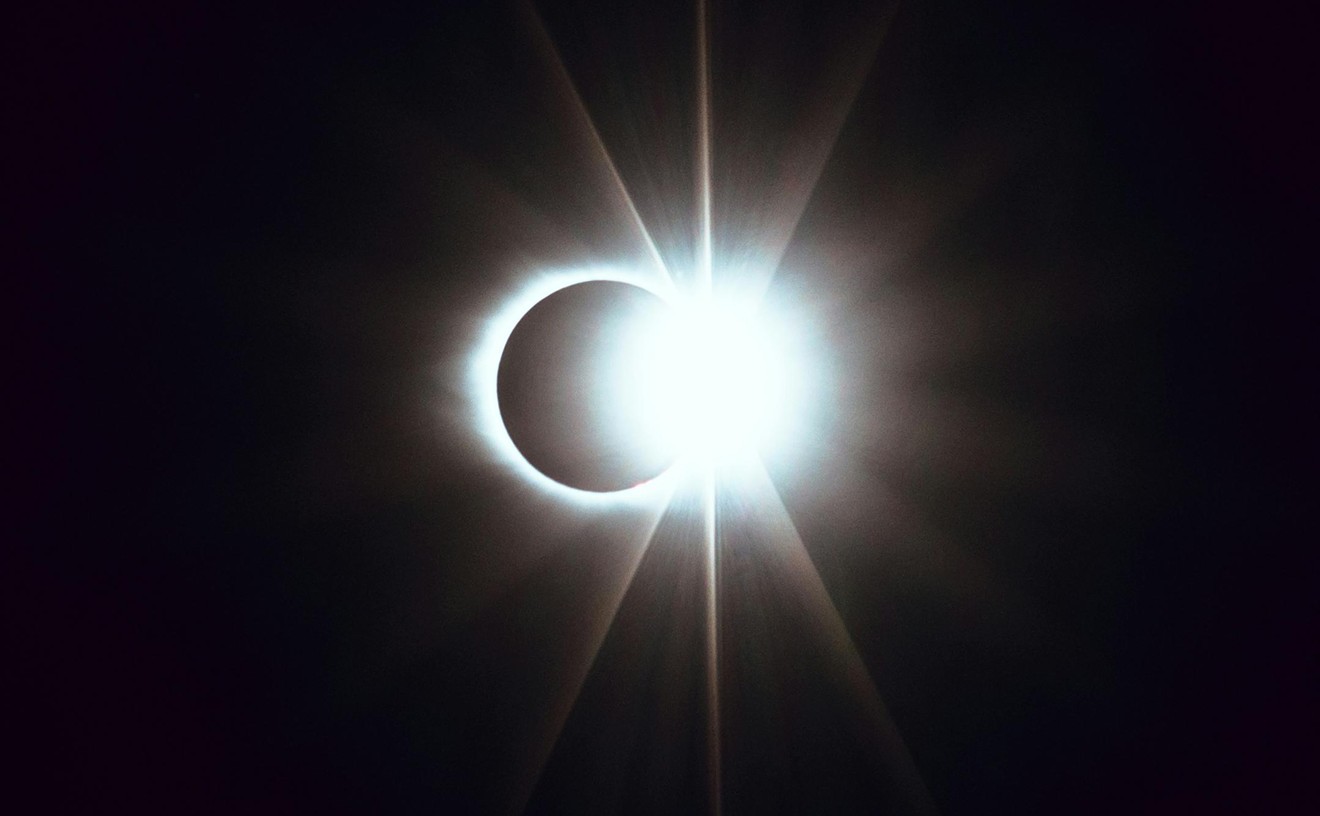
Updated Total Solar Eclipse Forecast: Monday Remains Cloudy, With Slight Chance for Optimal Viewing
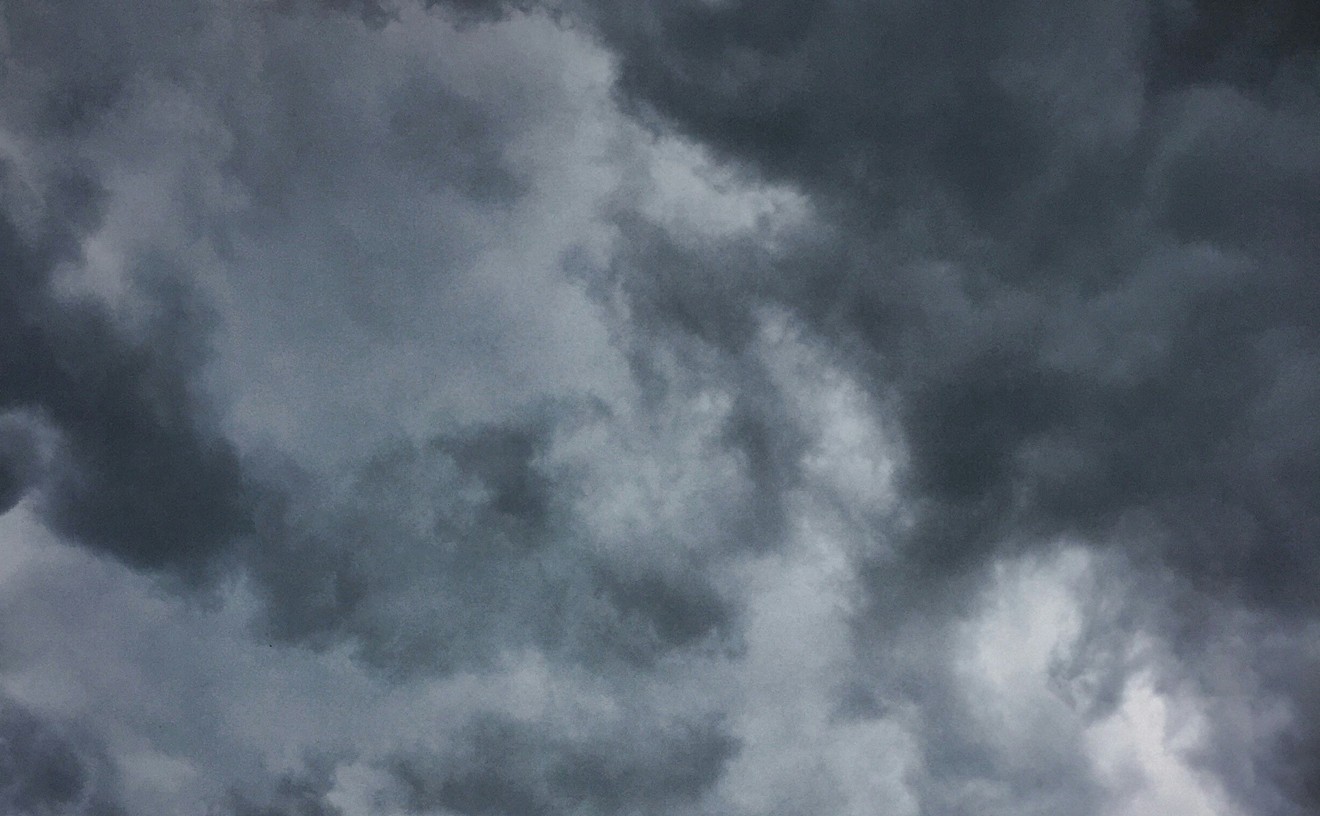
UPDATED: Despite a Potentially Stormy Forecast, Dallas Could Still Get a Good Eclipse Show
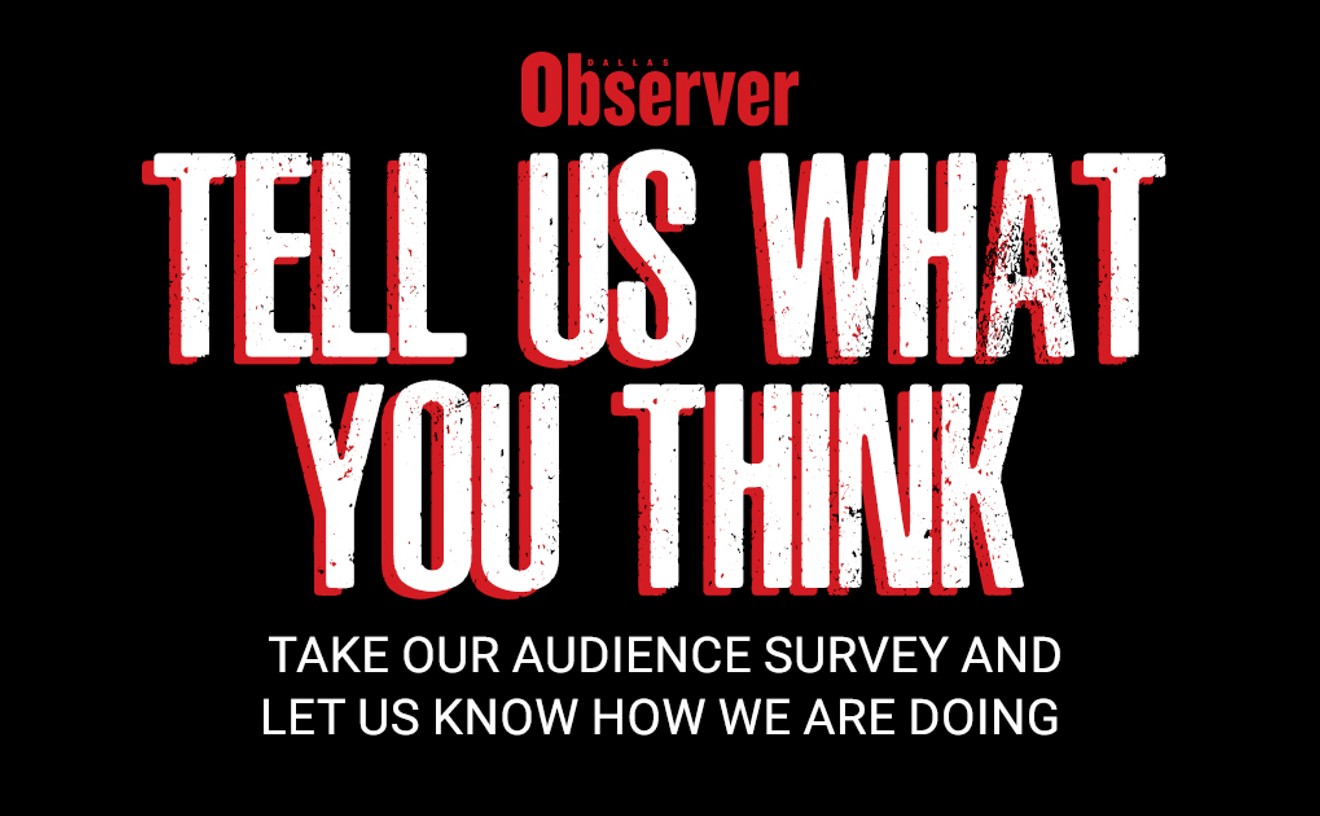
Share Your Feedback: 2024 Dallas Observer Audience Survey Now Open
By Observer Staff Writers
- View This Week's Print Issue
- Arts & Culture
- Things to Do
- Observer Events
- Advertise With Us
- Terms of Use
- Privacy Policy
- Voice Media Group
- Denver Westword
- New Times Broward-Palm Beach
- Miami New Times
- Phoenix New Times
- V Audience Labs
- V Digital Services
Watch CBS News
Rhino Hunting Permit Sparks Protest In Dallas
January 11, 2014 / 6:30 PM CST / CBS Texas
Dallas (CBS 11 News) - Dozens of people gathered in protest outside the Dallas Convention Center Saturday night, where an auction took place for the permit to hunt an endangered rhino species.
The Dallas Safari Club held its annual convention, with the marquee event as a live auction. Over a thousand people pre-registered, and had the option to bid on a permit to hunt one black rhino on a safari in Namibia.
The Namibian government only issues five permits each year to hunt the black rhino, and Dallas Safari Club organizers say this may be the first time they've allowed a permit to be auctioned off in the U.S.
The Dallas Safari Club hoped to draw $1 million from the sale of the permit, but the winning bid went for $350,000.
Now the highest bidder will hunt the endangered species in Namibia's Mangetti National Park, according to the Dallas Safari Club.
All of the money will go to a special fund used by the Namibian Ministry of Environment and Tourism , which provides anti-poaching, habitat protection and research money.
The whopping $350,000 bid is a record for the black rhino permit; the previous record sale price was $223,000.
The club says the auction and hunt are endorsed by three global wildlife authorities, one of which is the U.S. Fish and Wildlife Service.
Scientists estimate 4,000 black rhino are alive in the wild today.
Less than 2,000 wild black rhino exist in Namibia, a country twice the size of Texas, with just 2.5 million people.
The club the says that science shows selective hunting of older, post-breeding bulls helps the endangered population grow. Often times, the older, aggressive bulls kill younger, breeding bulls.
So when it comes time for the hunt, the Namibian government will supervise to make sure the target is an older male rhino. If the hunter is successful, the meat will be taken to a nearby community.
"With hunting as part of its conservation program, Namibia's rhino population is growing as much as five percent annually," a press release from the Dallas Safari Club states.
But not everyone agrees with the club's auctioning of the permit.
"If people are really interested in conservation and keeping [rhinos] alive, why don't they use their money, their wealth in more productive ways other than killing a rhino. It doesn't make sense," said Patti Weston, who drove from Louisiana to Dallas to join the protest.
Outrage over the hunt of the endangered species led to a backlash from animal activists and some wildlife groups.
The FBI was also called to investigate threats made against members of the Dallas Safari Club, including the club's executive director Ben Carter.
"I just don't think they know the facts. I think people are making an emotional decision on that and not hearing the science," Carter said.
Bob Lott is a bird hunter attending the convention, but says he would not hunt the endangered rhino.
"It'd be like somebody wanting to kill our eagles. We'd say no. We don't even kill eagles when they're wounded or whatever. We don't make a spectacle out of it," Lott said.
(©2014 CBS Local Media, a division of CBS Radio Inc. All Rights Reserved. This material may not be published, broadcast, rewritten, or redistributed.)
Top Trending:
- UPS Calls In 2,600 Extra Workers After Holiday Delivery Delays
- Cowboys' Romo Update: Complication In Back Surgery
- Flu Cases Spike In Texas, 13 Dead In Houston Area
- Deceased Teen Suspect Identified
- Victim Identified In Fatal Fort Worth Office Stabbing
PHOTOS: Your Pet Pictures
Featured Local Savings
More from cbs news.
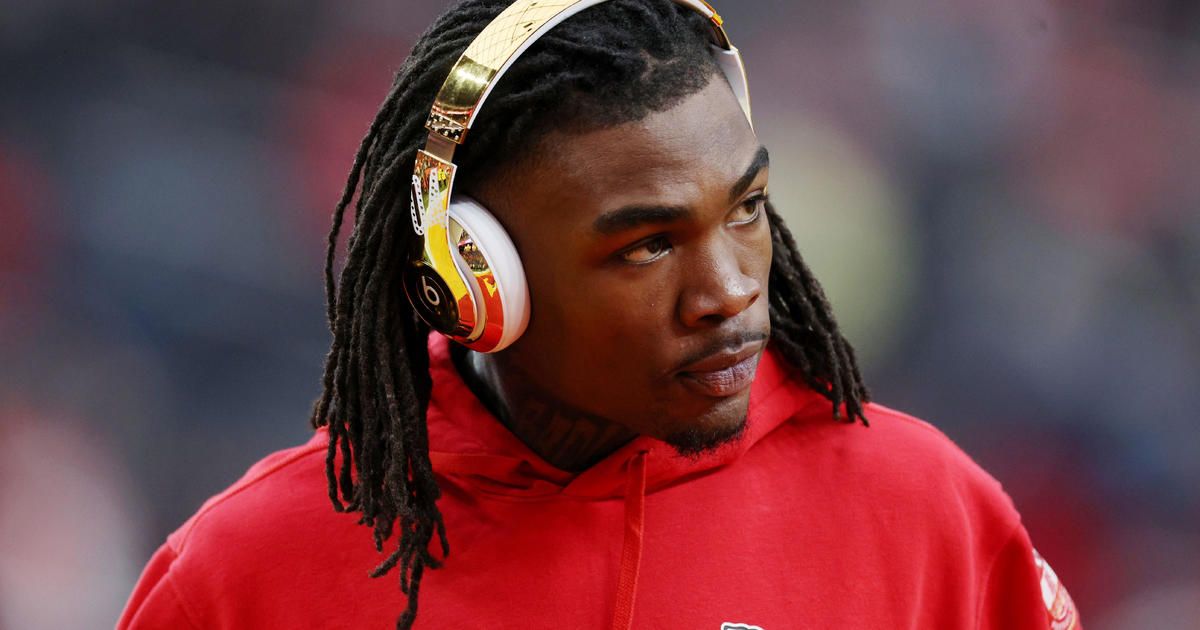
Rashee Rice's lawyer addresses Dallas accident
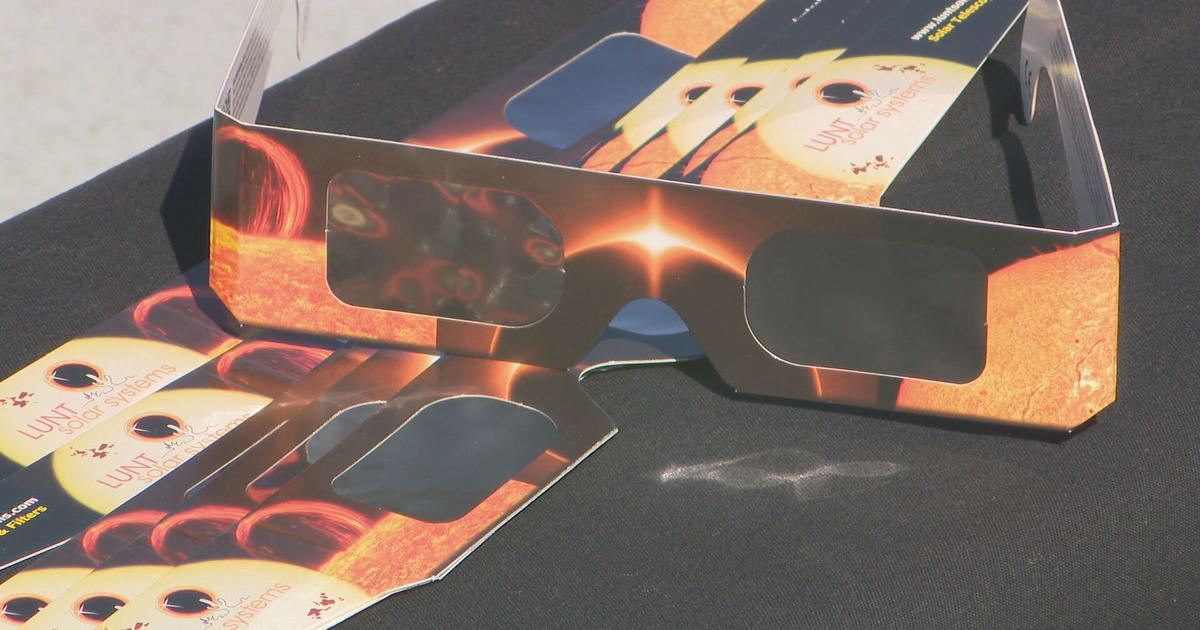
North Texas leaders help educate community on eclipse safety

Luka Doncic finishes with 25 points after scoreless 1st quarter, Mavs beat Hawks 109-95

No hangover for these Dallas Stars, who are streaking toward playoffs with record 8 wins in a row

IMAGES
COMMENTS
The Dallas Safari Club auctioned off a black rhino hunting permit in Namibia for $350,000, according to the club's public relations firm. Wealthy hunters gathered Saturday evening inside the ...
An American hunter has paid $350,000 for the right to kill an endangered black rhino in Namibia, like this one. ... Protesters gather outside the Dallas Safari Club's auction for a rhino hunting ...
DALLAS - A Texas hunter has received from the U.S. government a permit to bring home the taxidermy from a planned hunt for a black rhino in Namibia. The U.S. Fish and Wildlife Service - which administers the Endangered Species Act and regulates Americans' associated activities - approved the import permit based on the scientific […]
Frans Lanting /DPA/Landov. The Dallas Safari Club's controversial auction of a permit to hunt one black rhino in Namibia raised $350,000 over the weekend, the club confirms on its Facebook page ...
October 29, 2013. • 9 min read. A group called the Dallas Safari Club is auctioning off the chance for one hunter to shoot an endangered black rhinoceros in Namibia. The club claims all proceeds ...
The Dallas Safari Club controversy. 28 Oct 2013. By: Save the Rhino. Websites and newspapers this month have carried many articles and comments about an auction, to be held in Dallas in January 2014, for the right to trophy hunt a black rhino in Namibia. We're curious as to why this particular trophy hunt auction has received such widespread ...
The Dallas Safari Club is on a mission to save the black rhino, and it plans to do so in the most counterintuitive way possible: by offering up the chance to shoot one of them dead.
How Hunting Saves Animals. Dallas Safari Club worked with Namibian wildlife officials to auction a hunt of a black rhino, the most endangered of the rhino species. They expected to raise as much as $1 million from the auction with 100 percent of the proceeds going to rhino conservation efforts. Read More.
The auction sponsor, the Dallas Safari Club, says 100 percent of the proceeds will go to conserving rhinos in Namibia. But some conservation groups have condemned the hunt as sending the wrong ...
Jan 13, 2014, 7:30 AM PST. Black rhino. A mere 5,000 African black rhinos are now estimated to live in the wild, but that isn't stopping a Texas-based group from killing one of the endangered ...
The Dallas Safari Club will auction a permit to hunt a black rhino in Namibia, possibly fetching up to $1 million with proceeds going to protect the endangered animals in a move seen by some ...
The Dallas Safari Club has auctioned off a permit to shoot-and-kill a Critically Endangered black rhino in Namibia for $350,000. The club says the proceeds from the auction will aid rhino ...
Each year, the Namibian government issues five black rhino hunting permits that fund efforts to protect the species
So it may not be surprising that many conservationists were outraged when they heard that the Dallas Safari Club (DSC)—a Texan group for big game hunters—had auctioned off the legal right to hunt and kill a black rhino in the southern African country of Namibia. The cost: $350,000, won by an unknown bidder. More surprising, the group says ...
DALLAS (Jan. 11, 2014)—A Dallas Safari Club (DSC) auction has raised $350,000 for rhino conservation efforts in Namibia. All proceeds—100 percent—will go into a special fund used by the Namibian Ministry of Environment and Tourism for anti-poaching patrols, habitat protection, research and other measures crucial for protecting populations ...
The hunting permit sold for $350,000 on Saturday by the Dallas Safari Club, despite a broad outcry. ... allow this year—will go to support the Conservation Trust Fund for Namibia's Black Rhino.
The Dallas Safari Club and the African nation of Namibia auctioned the permit Saturday to raise money for efforts to protect the black rhino. Breaking News Get the latest breaking news from North ...
Comments on Dallas Safari Club Auction of a Permit to Hunt a Black Rhino 29 October 2013. Much media attention has been directed this past week to the Dallas Safari Club's intention to auction off a permit to hunt a black rhino in Namibia, the proceeds to go towards preserving this magnificent and critically endangered species.
Wednesday, May 13 - Bidding $350,000 to hunt. Windhoek, Namibia - Knowlton arrived quietly in Namibia to hunt the famed black rhino. Nearly 18 months ago, the Texas hunter bid $350,000 to kill ...
On January 11, 2014, the Dallas Safari Club auctioned off a permit to hunt a black rhino in Namibia. The winner paid US $350,000. The black rhino is a critically endangered species, facing an extremely high risk of extinction in the wild. About 1,700 black rhinos live in Namibia and fewer than 5,000 exist in the world.
The club says 100 percent of auction proceeds, which could total an estimated $1 million, will go to support the Conservation Trust Fund for Namibia's Black Rhino. The Dallas Safari Club has ...
Less than 2,000 wild black rhino exist in Namibia, a country twice the size of Texas, with just 2.5 million people. The club the says that science shows selective hunting of older, post-breeding ...
On Saturday night, a group of wealthy hunters will gather inside the Dallas Convention Center to bid on the rare chance to hunt one of the world's most endangered animals in Namibia. The Dallas ...